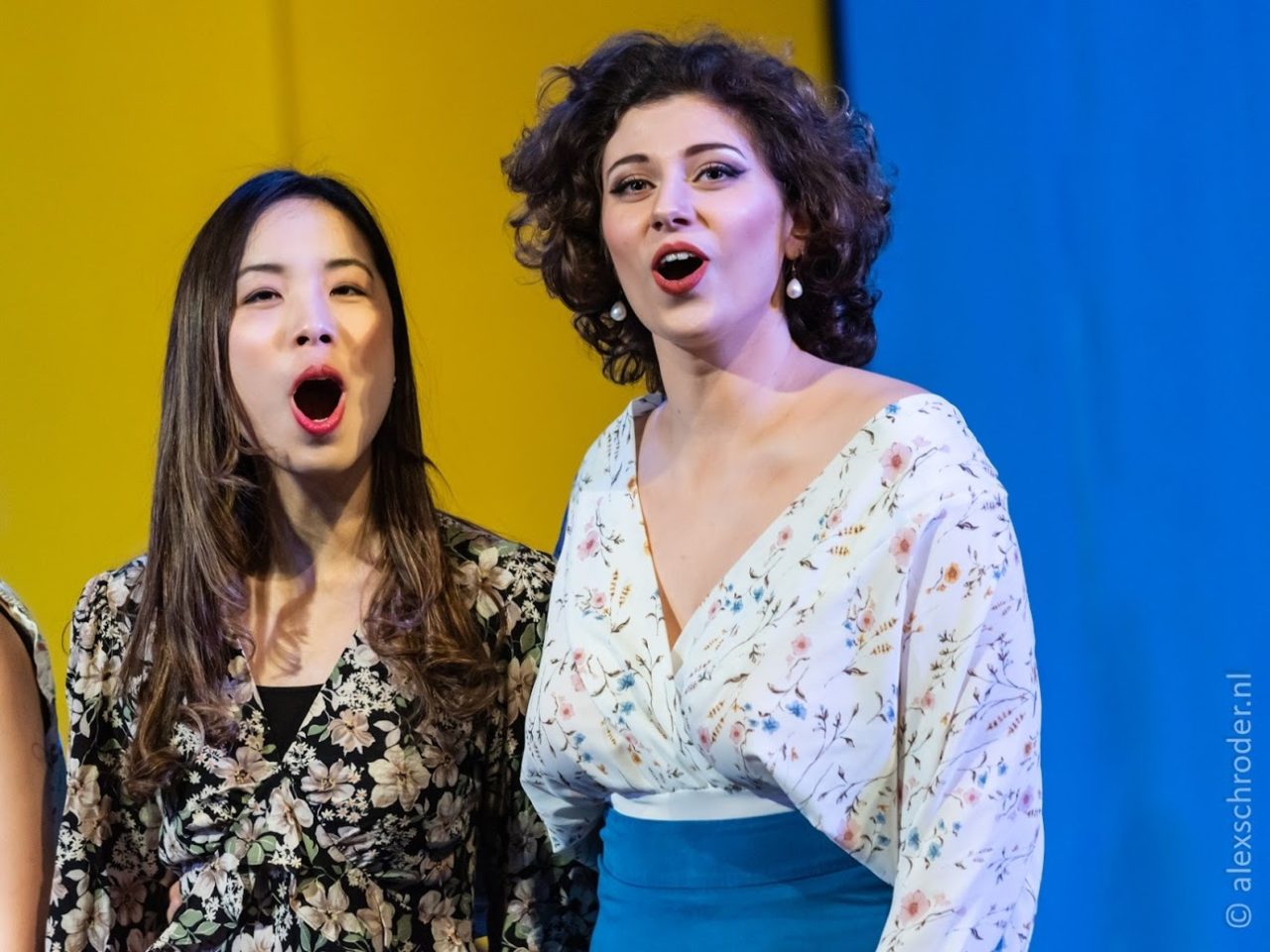Vocal Early Music Master Student Korneel Van Neste is summarising "Love in the Time of War" with Michael Chance
In all my life (which is admittedly quite short), there are not many experiences as special and peculiar as the opera projects led by Michael Chance. I’ve had the opportunity and the privilege to participate in these opera projects for the last 3 years, and there is a certain pattern that I was able to discern. It is as if one grandmaster and his students try their hardest to create some order in a universe of chaos by embracing and harnessing said chaos.
It is truly fascinating to be in the middle of this process of creation, where Michael’s seemingly boundless imagination, mixed with the youthful enthusiasm and energy of the students, results in a story (or stories) that are staged and molded into an opera.
The whole thing is quite frankly exhausting as well as exhilarating. The short amount of time and stress that goes with it causes many a rehearsal to almost feel like caffeine-fueled hallucinations and makes us thankful for the ever-present Ruth and her desk with sugary treats.
It all started with nothing, except for some pieces of music, a collection of panels, a bunch of singers, two baroque ensembles and Michael. The ensembles were divided in Love and War. The music was divided in acts and scenes. The panels were used to create different settings. Then, the process of creation could begin. Many singers came and went on stage, from scene to scene, from act to act. Props were used, costumes were chosen, scenes were put into place; slowly but surely, an opera was born. Then, every scene was run again and fine-tuned through small changes.
These small changes in movement on stage and settings of the panels could be confusing due to the shortage of time necessary to really study these changes. I think all singers can be truly commended for their efforts in making the transitions and movements on stage work. I’m sure there’s a lot of stress involved, as we all want this production to be as good as it can be (or because we don’t want to be the one person that makes it all go sideways). With all these changes, frustrations can arise, but the sense of comradely that is between us singers is stronger than these frustrations, and I, for one, am really grateful for that. It is, in my opinion, one of the strongest qualities within the vocal department.
The musicians in the ensembles had to accompany incessantly (sometimes the same 7 notes/chords for what must feel like hours) or wait a long time whilst we are rehearsing some movements on stage, which I can only imagine is both really tiring and frustrating for them, and therefore, in name of all the singers, I would like to thank them from the bottom of my heart for all the hard work and frustrations they had to fight through. You truly are one of the cornerstones on which this whole opera rests and your efforts cannot be overstated.
In summary, I think this project teaches us a lot about how professional projects can go; you may become exhausted and annoyed, but in the end, it often becomes a fond memory of a good time.
I also would like to thank Ruth for making this whole project work through meticulous planning and communication. In a way, you are the spark that makes this order within the chaos possible.
And last but not least, I would like to thank Michael for coming to the conservatoire every year to set up these amazing projects. Somehow, you always manage to create an opera in 4 days, which is close to a miracle. I personally (and I’m sure many people that participated throughout the years will agree) appreciated these projects a lot and I hope for the sake of future generations of singers/students, that you will keep on creating these operas so that we may learn and be part of something quite extraordinary.
